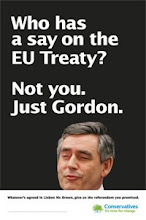'Israeli forces have killed two Palestinians and wounded another in the central Gaza Strip, Palestinian medics and Israeli sources say.
A bare statement of fact although if the Palestinian sources are identified as 'medics' why are the Israeli sources so identified?
The incident took place near the border fence with Israel after a two-month lull in violence along the border.
Has there been a ceasefire or a 'lull'? How often has the 'lull' been broken? What actions preceded the lull? After 10 hours surely some more meat could be added to this story.
Israeli military sources said the army had targeted militants who were trying to fire rockets into Israel.
Did the Israeli army say they had targeted 'militants' or did they say 'terrorists'? See my earlier complaint for why this is an example of the BBC breaking its own editorial guidelines.
They seem to be the first deaths since an unofficial April ceasefire between Israel and most Gaza militant groups.
Would a mention of the Fogel family who were massacred in their sleep by Palestinian terrorists in March not be in order here, a s a reminder of which side are the aggressors?
"Two people were killed and one was injured in an artillery shelling east of the al-Maghazi refugee camp in the central Gaza Strip," emergency services spokesman Adham Abu Selmiya told the AFP news agency.
Did the 'emergency services spokesman' not identify who these people were, or what organisation they worked for?
Those who were killed are believed to be from a small militant groups sometimes called Salafist jihadis, says the BBC's Jon Donnison in Gaza.
Would a description of what these groups want and/or believe in be in order? Who says these people are Salafist jihadis? Could Jon Donnison not provide a bit more detail after ten or more hours?
Salafists did not sign up to the ceasefire but since then, Hamas - which governs in Gaza - has reined in smaller militant groups, our correspondent adds.'
Why did the Salfist jihadis not sign up to the ceasefire? How does anyone sign up to an 'unofficial ceasefire' anyway, for that is what we were told it was a few paragraphs previously? If Hamas has reined in the smaller 'militant groups' (I presume militant is the BBC's preferred word) and the BBC seems to want to give them credit for that, then what happened here?
Why is this article so sparse so many hours after it first appeared? Am I being cynical in assuming that if there had been some negative news to reflect on Israel, for example unarmed civilians or children killed that the article would have been expanded to include tales (and maybe pictures) of the weeping wives and/or mothers but as these were 'militants'/terrorists that were killed the BBC will just let this story wither away.
Finally, there is the map that the BBC choose to illustrate the article with...
It is incredible how the BBC can make Israel look so enormous and also as if it surrounds Gaza, thus being able to blockade it for all these years.
There is just one problem with this - Israel does not surround Gaza. The country that borders Gaza to the South East is Egypt not Israel, that is where the Rafah Crossing is...
So why the omission of the word Egypt from that first map?











2 comments:
It's so helpful of you to put your contribution in italics. Otherwise it would be hard to tell what was professional journalism and what was your personal opinion.
So no comment on the blatant BBC bias, just a sarcastic remark about my blogging. Well done you, you must be so proud of yourself. Don't worry, whether you write in italics or not I know that you are neither a journalist nor someone interested in facts. I think you, I and all my readers know what you are.
Post a Comment